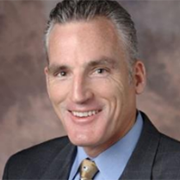Cerner to Increase Focus on Value-Based Reimbursement
As the healthcare industry prepares for the national push for value-based care, one of the leading names in health IT is working to support providers facing dramatic changes to their healthcare revenue cycle.

- Cerner has named Adventist Health System's Jeff Hurst to oversee its revenue cycle management division, the company announced Tuesday. Hurst, who currently serves as Florida Hospital's Senior Vice President of Finance at Florida Hospital will depart the health system after 20 years of service and take up his new role as Cerner's Senior Vice President of Revenue Cycle Management and President of Cerner RevWorks.

According to Cerner President Zane Burke, the addition signals the health IT company's commitment to preparing healthcare revenue cycle management for value-based care and pay-for-performance reimbursement models.
"We’ve had a lot of success with revenue cycle, and the trajectory has been incredibly good for Cerner and Cerner’s clients. We want to accelerate that," Burke told RevCycleIntelligence.com.
"There is a ton of regulatory change impacting our clients," he continued. "The reimbursement model is under attack, consumers having a much louder voice moving forward, population health in relation to revenue cycle. It continues to become a tough and challenging problem for our clients."
Hurst joins Cerner after a decade as a client as part of Adventist Health System, whose revenue stream is close to $10 billion annually and where he himself saw firsthand the revenue cycle challenges facing healthcare organizations moving into value-based care.
"Revenue cycle has always been important, but now we’re entering into an environment where consumers and stakeholders are demanding and expected more value. Part of the value they’re seeking is a reduction in the cost of healthcare," he explained.
"I don’t have a crystal ball — I can’t tell you exactly where healthcare is going to be 20 years from now — but what I can tell you with a high degree of certainty is that payment rates are going nowhere but down," Hurst added. "The ability of health systems and providers across the industry to truly optimize their revenue cycle and squeeze every single dollar they can out of it which in turn allows them to pass value on to those end stakeholders is going to be an accelerated priority in the future."
According to Hurst, an efficient and effective revenue cycle is crucial to healthcare organizations of all sizes.
"Adventist Health System is about a $10-billion revenue system," he said. "If we get it right 99 percent of the time from a revenue cycle standpoint on a $10-billion revenue stream, that one-percent error rate is worth $100 million in revenue."
While the dust has yet to settle on MACRA implementation as proposed by the Centers for Medicare & Medicaid Services (CMS) earlier this year, it is already raising concerns among providers. These are the concerns Cerner is working to allay in upping its focus on revenue cycle management.
"There will be winners and losers in healthcare as we move forward because of decreasing reimbursement rates, and we need to be providing the highest value possible and ensure that our clients ultimately are successful in their endeavors," Burke maintained.
As provisions of MACRA take shape — namely, the Merit-based Incentive Payment System (MIPS) and Alternative Payment Models (APMs) — key partnerships around revenue cycle management will go a long way toward identifying and repairing gaps relative to healthcare reimbursement.
"There is no way we will survive, much less be successful in an environment where we don’t have value-add solutions to leverage our processes and resources and create value both from an effectiveness of outcomes standpoint as well as from an efficiency of cost standpoint," added Hurst.
Dig Deeper:
• Cerner Tops McKesson, Epic as Top EHR Vendor by Market Share
• 10 Biggest Cerner EHR Implementations in United States
